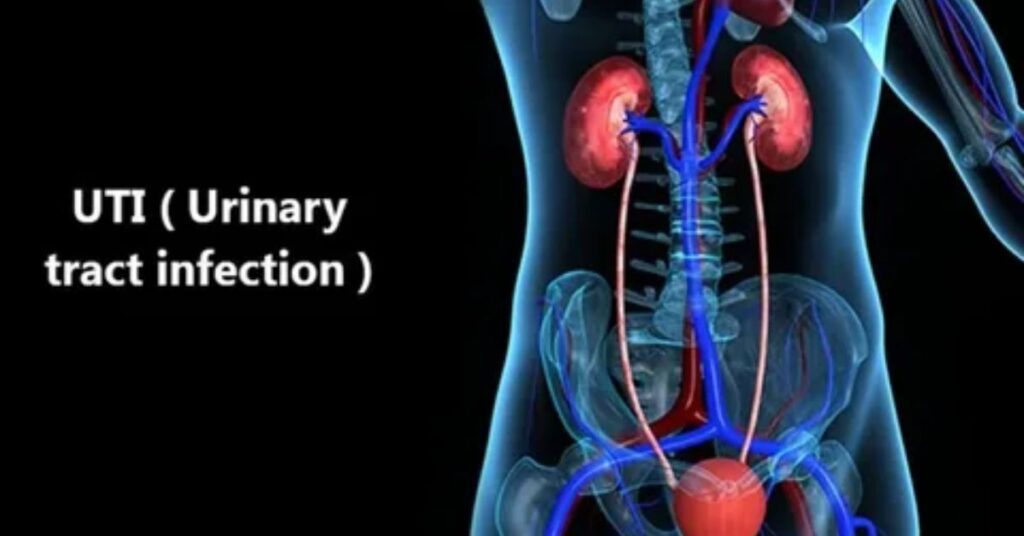Urinary Tract Infections (UTIs) are among the most common infections affecting individuals of all ages, particularly women. In the city of Dyer, healthcare providers report a steady number of UTI cases annually, influenced by factors such as hygiene, lifestyle, and hydration habits. One of the simplest yet most powerful preventive strategies often overlooked is drinking water. The link between UTI Dyer cases and drinking water benefits is not just anecdotal—it is supported by scientific research and clinical outcomes.
This article explores how increasing water intake can help prevent and manage UTIs, with a focus on the Dyer community. By understanding the role of hydration in urinary health, individuals can take proactive steps to reduce their risk of infection and promote overall well-being.
Understanding UTIs in Dyer
What is a UTI?
A urinary tract infection occurs when bacteria—primarily Escherichia coli (E. coli)—enter the urinary system, including the urethra, bladder, ureters, or kidneys. UTIs can be classified as:
- Lower tract infections (e.g., cystitis or bladder infections)
- Upper tract infections (e.g., pyelonephritis or kidney infections)
In Dyer, local clinics and urgent care centers frequently manage cases of lower UTIs, especially among women aged 18 to 45. Contributing factors include delayed urination, poor hydration, sexual activity, and inadequate hygiene practices.
UTI Dyer Statistics and Hydration Habits
Recent data from regional health providers in Dyer suggest that hydration plays a significant role in UTI recurrence. Patients who drink fewer than six glasses of water per day report more frequent infections than those with higher water intake. Many Dyer residents unknowingly fall short of the daily hydration recommended by health authorities.
The Connection Between Drinking Water and UTI Prevention
1. Water Helps Flush Out Bacteria
One of the most effective ways to prevent UTIs is by flushing bacteria out of the urinary tract before they can colonize and cause infection. Drinking plenty of water increases urine output, which:
- Dilutes the concentration of bacteria
- Promotes regular urination
- Reduces bacterial dwell time in the bladder
By keeping the bladder consistently flushed, Dyer residents can lower their chances of infection.
2. Water Keeps the Urinary Tract Lining Healthy
Proper hydration helps maintain the mucosal lining of the urinary tract, which serves as a barrier against invading pathogens. Dehydration can weaken this lining, making it easier for bacteria to attach and multiply.
In Dyer’s dry seasons or during winter when people tend to drink less water, UTI rates often rise. Staying hydrated year-round supports a resilient urinary tract.
3. Water Reduces the Risk of Recurrent UTIs
Individuals with a history of recurrent UTIs are often advised by urologists in Dyer to increase water intake as a primary preventive measure. One clinical study found that women who added 1.5 liters of water to their daily intake had nearly 50% fewer UTIs compared to those who maintained low fluid consumption.
For Dyer residents with chronic UTI Dyer concerns, increasing water intake is a cost-effective, side-effect-free preventive strategy.
Signs You’re Not Drinking Enough Water
Many people in Dyer unknowingly operate in a state of mild dehydration. Warning signs include:
- Dark yellow or concentrated urine
- Infrequent urination (less than 4–6 times daily)
- Dry mouth and skin
- Fatigue or dizziness
If you’re experiencing any of these symptoms and are prone to UTIs, hydration should be a top priority.
Drinking Water Guidelines for UTI Prevention
How Much Water Should You Drink?
The general guideline is 8 glasses (about 2 liters) of water per day. However, this varies based on age, body weight, activity level, and climate. For example:
- Active individuals may require 10–12 glasses daily
- Pregnant or breastfeeding women may need more
- Elderly adults should drink regularly even without feeling thirsty
In Dyer, where summers can be warm and humid, increased perspiration demands even higher fluid intake.
Tips to Stay Hydrated
- Carry a water bottle throughout the day
- Drink a glass of water before each meal
- Use a water tracking app to meet daily goals
- Add natural flavors like lemon or cucumber for variety
- Replace sugary drinks with herbal teas or infused water
Hydration for High-Risk Groups in Dyer
Women
Due to a shorter urethra, women are more prone to UTIs. In Dyer, gynecology clinics frequently counsel women to increase fluid intake, particularly after sexual activity, during menstruation, and in hot weather.
Children
Pediatricians in Dyer recommend adequate water intake for children, especially those struggling with constipation, which can indirectly increase UTI risk. Children should be encouraged to drink water rather than sodas or juices.
Seniors
Older adults in Dyer face unique challenges. Thirst sensation declines with age, making dehydration more likely. For seniors in assisted living or nursing homes, structured hydration routines and frequent bathroom visits are essential in preventing UTI Dyer.
Water vs. Other Beverages: What Helps and What Harms
Best Choices
- Plain water: Most effective and calorie-free
- Herbal teas: Chamomile, peppermint, and ginger tea may soothe the bladder
- Coconut water: Natural electrolytes and hydration boost
Beverages to Limit
- Caffeinated drinks: Coffee and tea may irritate the bladder
- Alcohol: A diuretic that can lead to dehydration
- Sugary drinks: May increase inflammation and bacterial growth
In Dyer, educational programs in schools and health centers often emphasize these distinctions to encourage healthier beverage choices.
Real-Life Stories from Dyer
Sarah, 34 – “Water Changed Everything”
After suffering from recurrent UTIs for years, Sarah from Dyer was prescribed antibiotics repeatedly. Frustrated with the cycle, she began tracking her hydration. “Once I started drinking at least 8 glasses of water daily, I noticed a massive difference,” she shared. In the past year, she’s had zero infections.
Mike, 55 – “Hydration Helped My Recovery”
Mike developed a kidney infection after ignoring UTI symptoms. During his recovery, his doctor emphasized hydration. “I never realized how little I drank,” he said. “Now, my water bottle goes everywhere with me.”
These stories highlight how small lifestyle changes can yield big results.
Dyer-Based Health Programs Promoting Hydration
Several clinics and community health initiatives in Dyer are incorporating hydration education into their wellness programs:
- Dyer Women’s Wellness Clinic offers hydration counseling for UTI-prone patients.
- Local schools include hydration awareness in health education.
- Senior centers provide hydration reminders and scheduled water breaks.
These efforts aim to reduce UTI Dyer cases through simple, sustainable behavior changes.
The Environmental Factor: Dyer’s Water Quality
One concern some residents raise is the taste or safety of tap water. Fortunately, Dyer maintains high municipal water quality standards, and routine testing ensures its safety for drinking.
Still, for those uncomfortable with tap water, filtered pitchers or bottled water can be good alternatives. What matters most is consistent intake—regardless of the source.
Final Thoughts: Hydrate for Your Health
UTI Dyer cases can often be prevented or reduced with a focus on drinking water. Hydration supports urinary health by flushing out harmful bacteria, maintaining mucosal defenses, and improving overall body function. Whether you’re young or old, male or female, healthy or immunocompromised, water remains your simplest and most powerful defense against infection.
In a healthcare climate increasingly focused on prevention, water is more than just a beverage—it’s a form of self-care. By committing to regular hydration, Dyer residents can take a proactive step in protecting themselves from UTIs and enjoying a healthier, infection-free life.
FAQs
1. How much water should I drink daily to prevent UTIs in Dyer?
Most adults should aim for at least 8 glasses (2 liters) of water per day. In warmer seasons or with high activity levels, more may be needed. If you’ve had frequent UTIs, your doctor may recommend increasing your intake even further.
2. Can drinking more water really prevent a UTI?
Yes. Increased hydration flushes bacteria from the urinary tract, making it harder for infections to take hold. Studies show that women who drink more water experience significantly fewer UTIs than those who don’t.
3. Is bottled water better than tap water for UTI prevention in Dyer?
Not necessarily. Dyer’s tap water is safe and regularly tested. What matters more is consistent water intake, not the source. If you prefer bottled or filtered water for taste, that’s fine—as long as you’re drinking enough.



